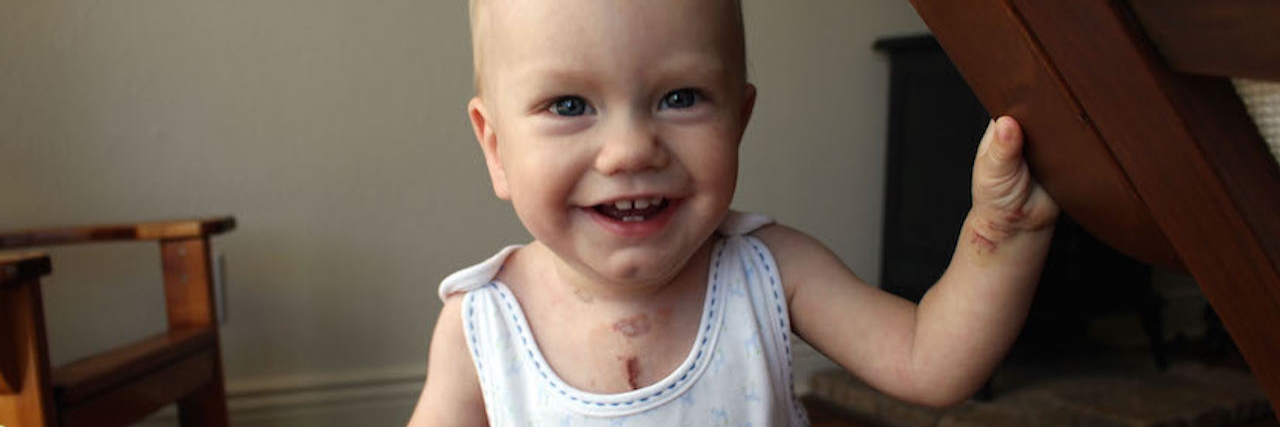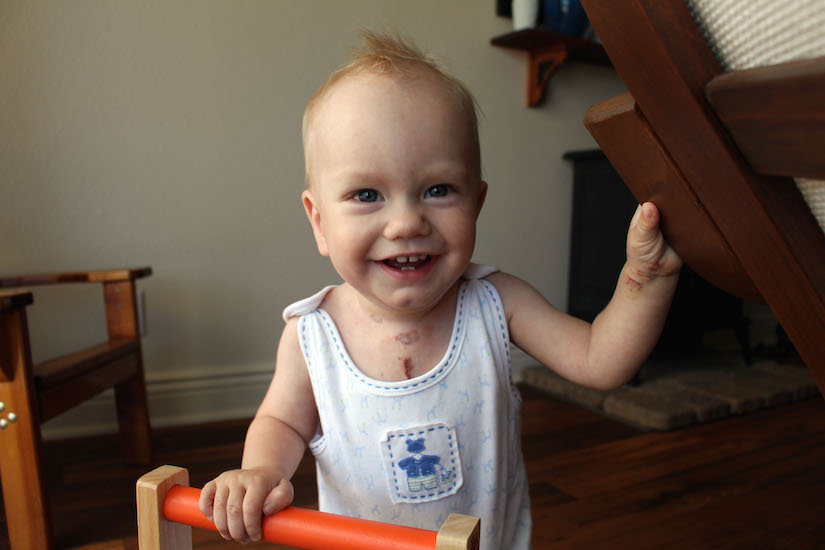You don’t expect to have your core rattled walking down the greeting card aisle at Target, or standing in line at the grocery store, or sitting on a shaded bench quietly. But then, isn’t it so often during these unexpected moments when lessons unveil themselves from dusty shadows, and epiphanies lean whispering into our ears? The first time it was shortly after my son Walter’s diagnosis in-utero. The next time was well into my third trimester. The third time happened with my 3-week-old baby at the park.
“Congratulations!” read the card, “…on your perfect baby boy!”
“10 little fingers, 10 little toes, beating healthy heart, and a button nose,” exclaimed another.
“Oh don’t you worry about a thing, honey,” cooed an experienced older lady, “as long as that baby’s healthy – that’s all that matters.”
“What a cute baby!” cried a mother of three, “Boy — or girl. Well what does it matter, he’s happy and healthy! What else could you hope for?!”
There were others, too. Like the small boy at the Children’s Hospital who tugged his mother’s sleeve and asked why the baby in the elevator with him was visiting the hospital.
“He’s not sick,” the boy observed.
“Well, healthy babies go to the doctor, too,” she replied.
It was the morning of Walter’s second open-heart surgery.
Over the course of my pregnancy, and Walter’s days spent outside the hospital, this tableau seemed to repeat itself time and time again. I rarely corrected the inquirers or told them that this happy little boy was actually not so healthy. Every encounter was, after all, well-intentioned. As months went by, it became a kind of relief not to give my “elevator speech” about Walter’s heart to casual acquaintances or passersby. I was able to duck the series of questions that inevitably ensued about how congenital heart defects occur, whether they’re avoidable in pregnancy and whether he’ll be “as good as new” after multiple surgeries.
See, Walter isn’t perfect. Nor is my husband, you, or I. But in his innocence and purity, Walter’s imperfection is simply more obvious than those around him. Walter was born broken, as we all are. I don’t want him to be “as good as new” because that would present itself as a death sentence anatomically speaking, and little growth developmentally. Walter’s brokenness begs unsettling questions about life. Unsettling questions that shatter glass houses and comfortable tranquility. His scar peeks from under his neckline, and his tummy is riddled with chest tube incisions. They are markers of something flawed tangibly, for him, that we all possess intangibly ourselves.
And that is why being his mother for the past year and four months (since we received his diagnosis) has allowed me to see why our expectations for perfect children in perfect families in perfect health is so misguided — because life is fragile and incredibly precious. Even the most flawed among us, and the unhealthy babies given to us, have an immeasurable, unrepeatable value. And because even the healthiest of us know not what tomorrow holds.
Every mother wants nothing but health and goodness for her child. But having Walter has freed me to move beyond perfection. Beyond disappointment and grief, and beyond the more earthly and mundane worries of today. I’ve seen that perfection does not lead us to anywhere but fleetingly false security and an eternity of doubt and sorrow.
As for our blemished, our sick, our scarred and ourselves — my hope is that we will learn to see these moments in our lives as perfectly imperfect. Because we are not given perfection, but purpose.
The Mighty is asking the following: What’s one thing people might not know about your experience with disability and/or disease, and what would you say to teach them? If you’d like to participate, please send a blog post to community@themighty.com. Please include a photo for the piece, a photo of yourself and 1-2 sentence bio. Check out our Share Your Story page for more about our submission guidelines.


